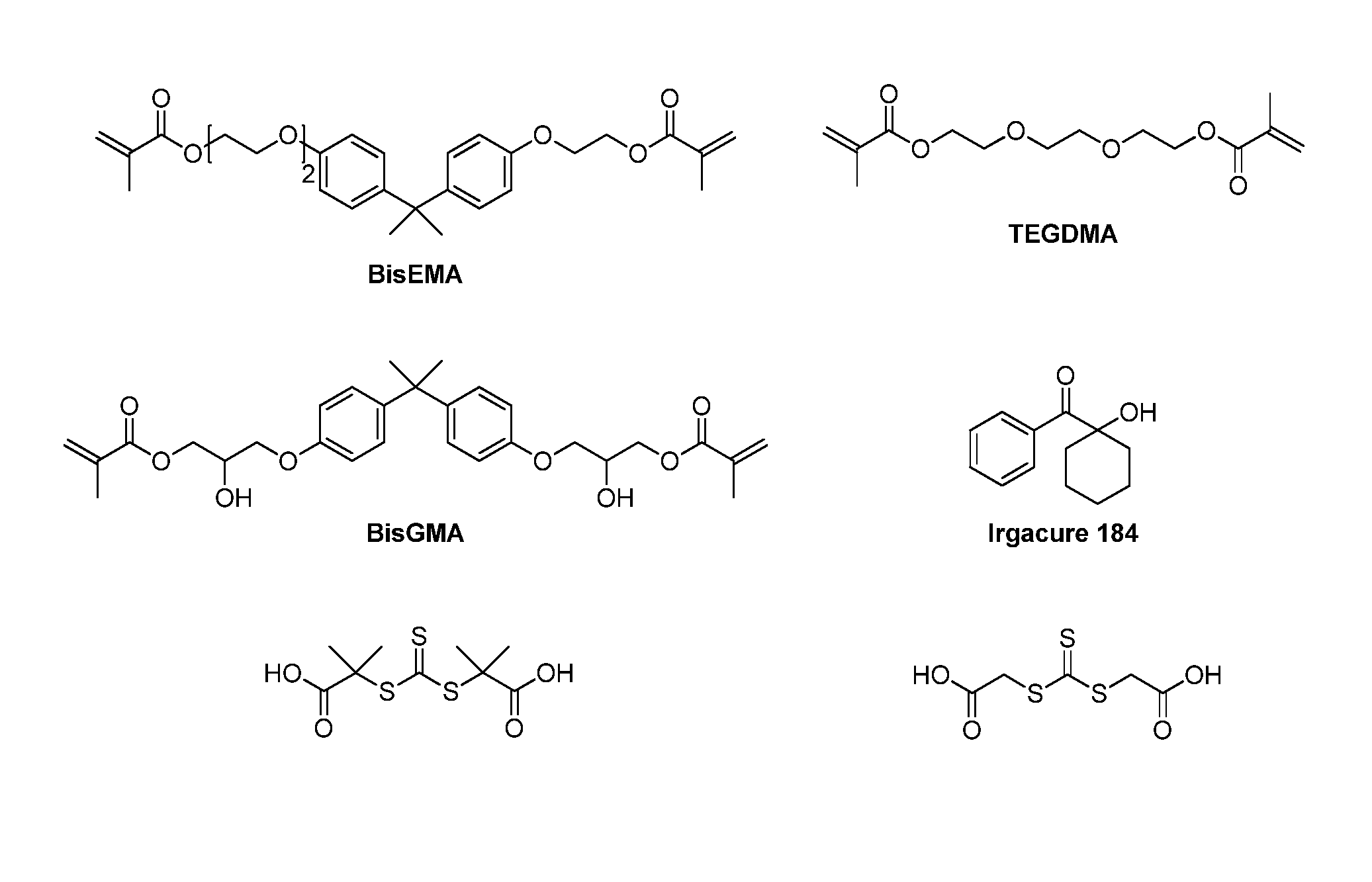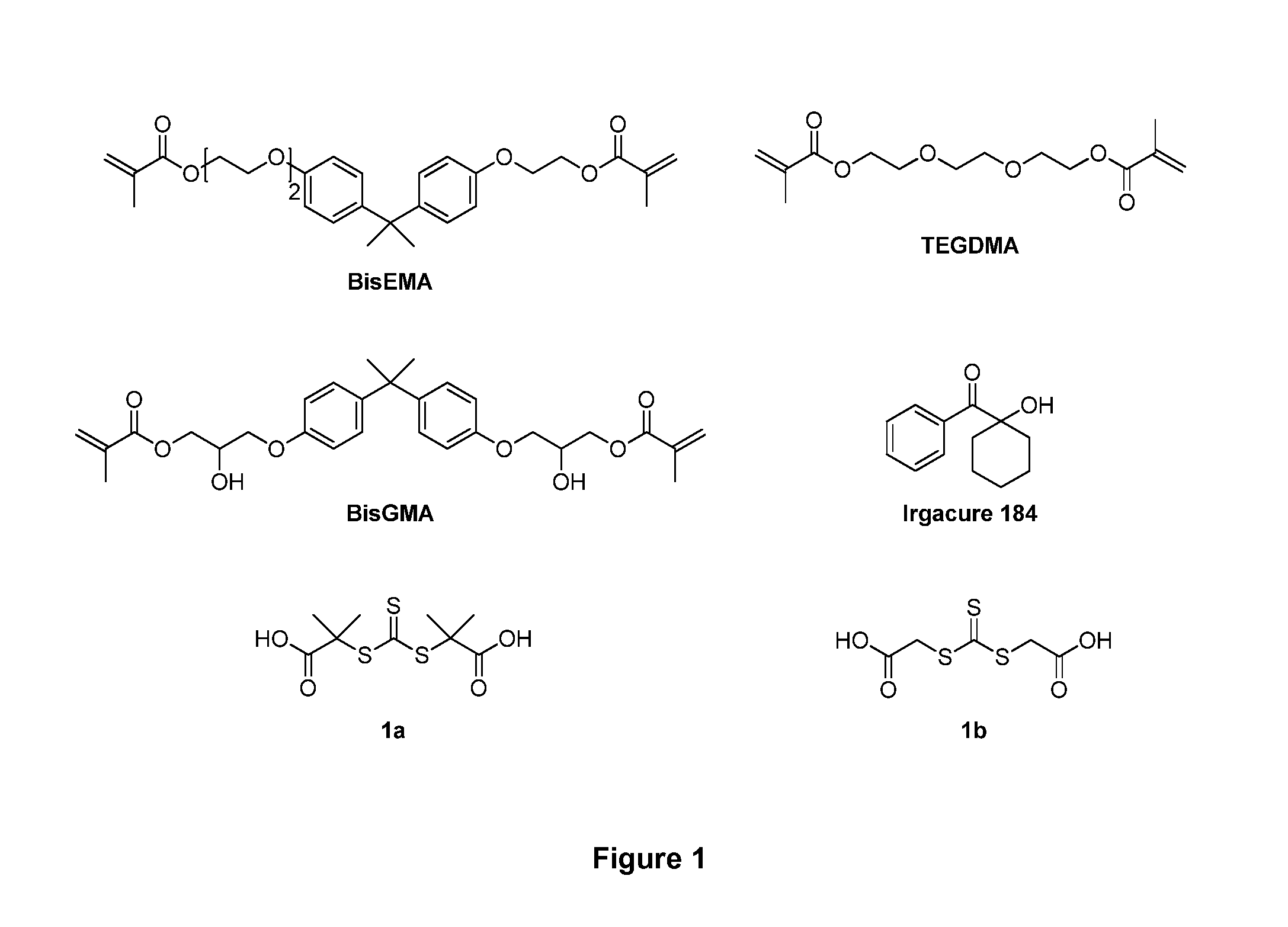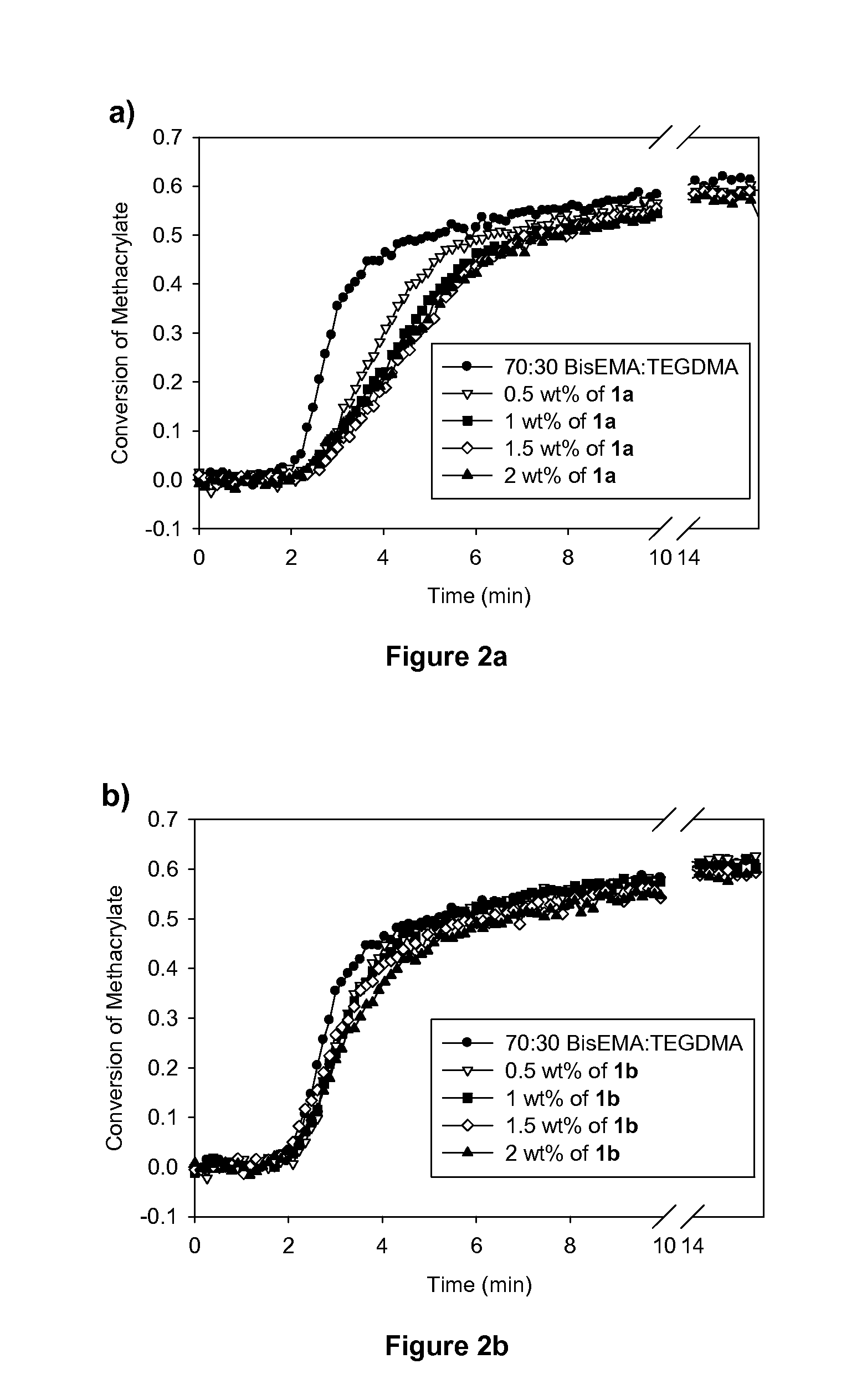Reducing polymerization-induced shrinkage stress by reversible addition-fragmentation chain transfer
a technology of additionfragmentation chain and polymerization, which is applied in the field of reducing polymerization-induced shrinkage stress by reversible additionfragmentation chain transfer, can solve the problems of internal stress warping or cracking the material or the underlying substrate, reducing the ultimate mechanical properties of the cured polymer and/or limiting its applications, and preventing premature gelation
- Summary
- Abstract
- Description
- Claims
- Application Information
AI Technical Summary
Benefits of technology
Problems solved by technology
Method used
Image
Examples
example 1
[0049]To overcome the significant issue of volumetric shrinkage stress in crosslinked multi(meth)acrylate networks, the addition of the trithiocarbonate 1a was employed, promoting reversible, free radical-mediated network rearrangement, that enables network adaptation, stress relaxation and ultimately mitigation of polymerization-induced shrinkage stress. Incorporation of 1a or 1b into a dimethacrylate system (70:30 BisEMA:TEGDMA) was examined through FT-IR kinetic studies, demonstrating that the polymerization rate was reduced in samples containing 1a, indicative of the changed polymerization mechanism. In addition, shrinkage stress studies showed that incorporation of as little as 2 wt % of 1a to 70:30 BisEMA:TEGDMA reduced the volumetric shrinkage stress by more than 50% compared to the pure dimethacrylate system, while maintaining the favorable mechanical properties of the methacrylate crosslinked networks (crosslinked density and Tg). This approach necessitates no synthetic mod...
PUM
| Property | Measurement | Unit |
|---|---|---|
| Fraction | aaaaa | aaaaa |
| Glass transition temperature | aaaaa | aaaaa |
| Molecular weight | aaaaa | aaaaa |
Abstract
Description
Claims
Application Information
 Login to View More
Login to View More - R&D
- Intellectual Property
- Life Sciences
- Materials
- Tech Scout
- Unparalleled Data Quality
- Higher Quality Content
- 60% Fewer Hallucinations
Browse by: Latest US Patents, China's latest patents, Technical Efficacy Thesaurus, Application Domain, Technology Topic, Popular Technical Reports.
© 2025 PatSnap. All rights reserved.Legal|Privacy policy|Modern Slavery Act Transparency Statement|Sitemap|About US| Contact US: help@patsnap.com



